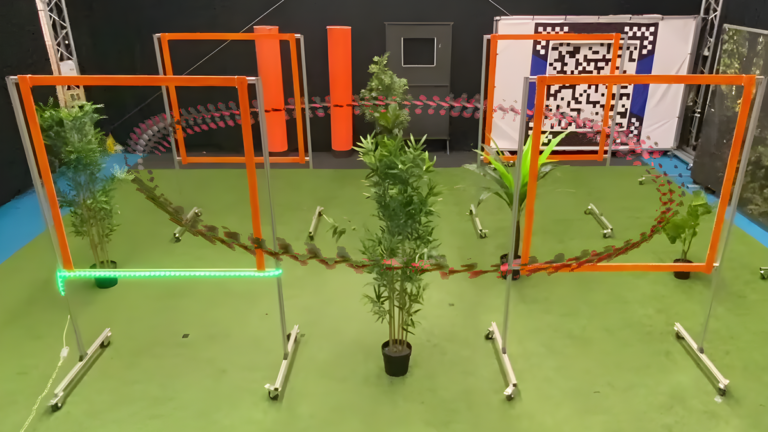It’s time to race! AI-powered drone racing.
The European Space Agency’s (ESA) Advanced Concepts team (ACT) has partnered with the Micro Aircraft Laboratory at Delft University of Technology (TU Delft) in the Netherlands to train a neural network artificial intelligence system for drone racing. Ultimately, the program will test the AI’s ability to perform complex maneuvers that could be implemented in future space missions (there’s a Star Wars pod race joke here somewhere).
AI neural networks mimic the human brain in that they pass information from one “neuron” to another. This mechanism holds great promise, especially when it comes to autonomous space missions that involve maneuvering complex spacecraft.
Traditionally, humans on the ground plan maneuvers and send instructions to the spacecraft, which then executes them. But with neural network AI, a spacecraft can take real-time data into account to correct course almost instantly and navigate autonomously. After all, space is a highly unpredictable place.
Related: Safety first: NASA vows to use AI carefully and responsibly
“In space, all onboard resources must be used as efficiently as possible, including propellant, available energy, computing resources and often time. Such neural network approaches enable optimal onboard operations, increasing the autonomy and robustness of the mission,” Dario Izzo, ESA’s science coordinator for ACT, said in a statement.
But like any element of a space mission, the technology must first be tested on Earth, “which is why we chose drone racing as the ideal environment to test our end-to-end neural architecture on a real robotic platform and build confidence in its future use in space,” Izzo said.
That’s why researchers are actively exploring AI-powered drone racing in TU Delft’s “Cyberzoo” course to demonstrate AI capabilities for future space missions.[T]”The use of drones represents a way to build trust, develop a solid theoretical framework and establish a safe zone before planning an actual space mission demonstration,” added ACT Young Graduate Trainee Sebastian Oliger.


